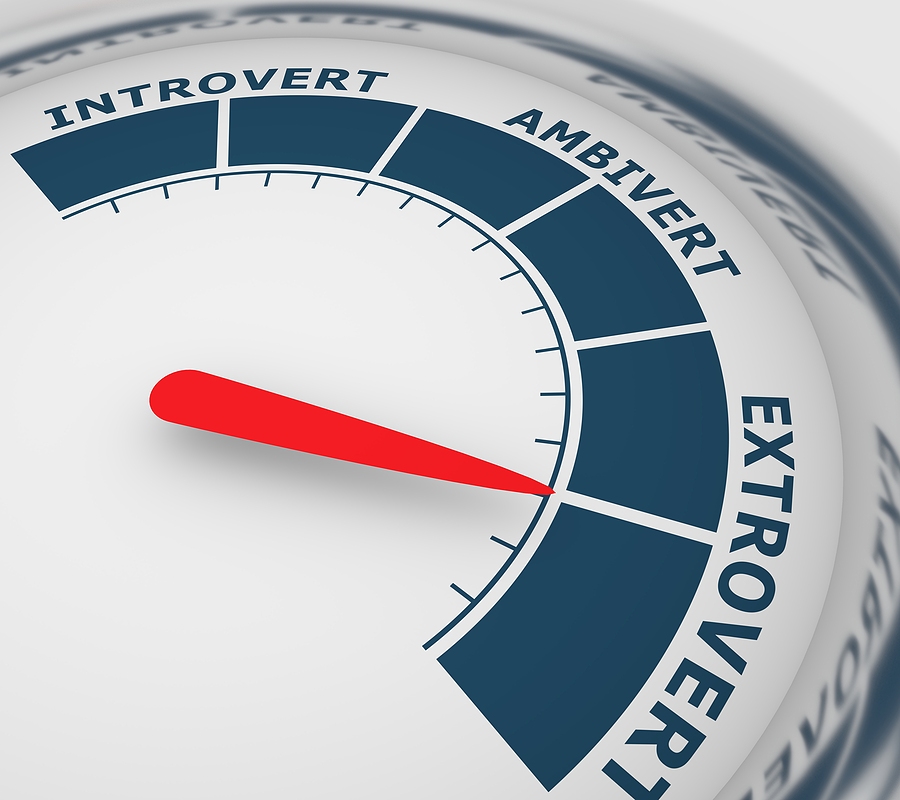
Extrovert, introvert or Ambivert?
Of the three, which one fits?
“Hey Margaret! I’m an introvert!” I was speaking with a friend from my college undergraduate days.
Laughing heartily, she replied, “Lin, we both are! It’s just taken us years to figure it out!”
Susan Cain’s twenty- question introvert versus extrovert questionnaire may surprise you, too.
If you have spent more than a week in the corporate world, then the Myers-Briggs Inventory is undoubtedly familiar. Perhaps you, too, hesitated while answering the questions that would clearly lead to the “diagnosis” of introvert versus extrovert. There were no other options. That error, however, has been rectified by ambivert- more on that later.
Since we live in the world inhabited by “The Extrovert Ideal”, author of Quiet, Susan Cain estimates that a third to half of Americans are by nature, introverted. But they do daily battle to persuade themselves and others that they are extroverted.
Why?
Because “introvert” conjures up this, right?
Our corporate cultures are frequently prejudiced against the introvert.
Therefore, the thoughtful, reflective type of person is well aware of the expectations of her superiors and employees. Most of us answer the questions in a way befitting the image of a boss, a Director, a CEO.
The basis of the Meyer Briggs Inventory is simplified Jungian psychology. An oxymoron since Carl Jung’s personality theory is far from simple. The test condenses Jung’s personality analysis into categories. Introverts are often perceived as shy, passive, and weak, while extroverts are often perceived as strong, assertive, and courageous. These simple ratios are similar to Jung’s theory of basic personality types; the reality, however, is more complicated. The result is what Cain describes as the extrovert ideal.
Cain, a closet introvert who has recently “come out”, argues that all major institutions, from church to corporation, favor the extrovert with their relentless emphasis on group activities of all forms and purposes. The extrovert ideal is simply another ploy that our culture holds over those who tend to stand back and watch when in a big group; prefer to write rather than speak.
Pondering about these questions for the nth time,
I wonder if it’s way less complicated than is suggested by the theorists. While in my corporate life, I was immersed in the activities that befit my position and was considered by most as very extroverted, outgoing, self-assured, and confident. But after that phase of my life ended, and I began to write fiction, I realized that I preferred reading or writing to casual conversation. Enjoying the fact that I am no longer required to present a certain image or pay attention to a member of the board of trustees.
All of which results in my realizing that there are situations where I act like an extrovert. But since my current vocation as a writer fits perfectly with introversion. Ergo: An Ambivert!
With all respect to those who created the Myers Briggs Inventory,
I think the categories of extrovert, introvert or ambivert are like all labels: woefully deficient in understanding ourselves or another. [Including but not limited to Republican or Democrat, Conservative or Liberal.]
Jung’s warning about our predilection for quick and easy compartmentalizing was ignored even by his peers:
Even in medical circles the opinion has got about that my method of treatment consists in fitting patients into this system and giving them corresponding “advice.” . . . My typology is far rather a critical apparatus serving to sort out and organize the welter of empirical material, but not in any sense to stick labels on people . . . . It is not a physiognomy and not an anthropological system, but a critical psychology dealing with the organization and delimiting of psychic processes that can be shown to be typical.Jung Personality Types
Thanks to Wharton Professor Adam Grant, some of the biases in favor of extroverts are being reversed. A study Grant conducted of more than 300 sales people revealed that extroverted sales persons were less successful than those who fit in neither the introvert or extrovert category.
Right, the ambiverts were the winners over either the extrovert or introvert.
If you can overlook my obvious love/hate relationship with labels, see where you fall on Adam Grant’s survey. Take Grant’s quiz and find out!